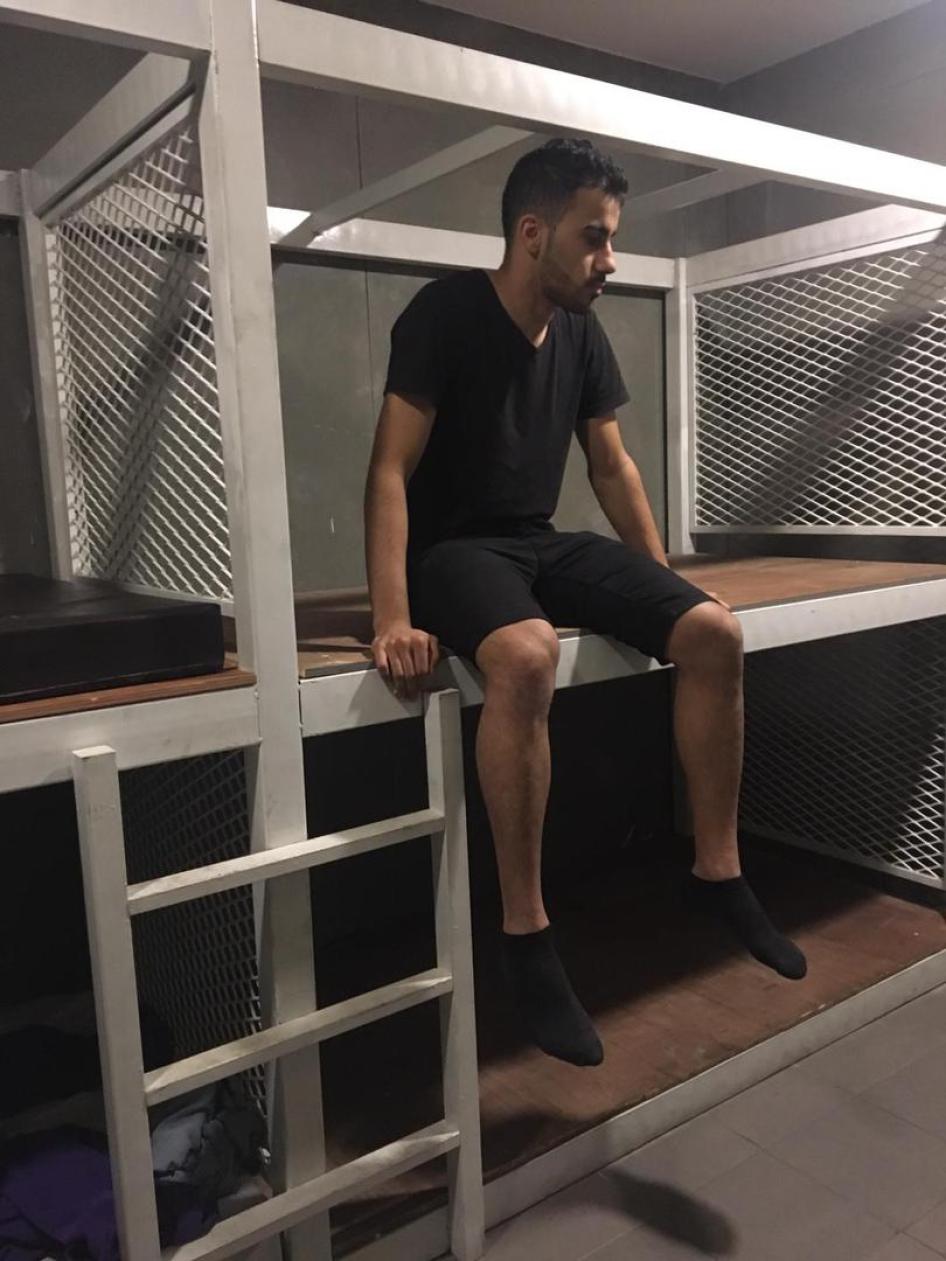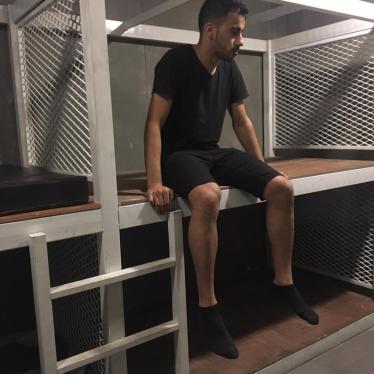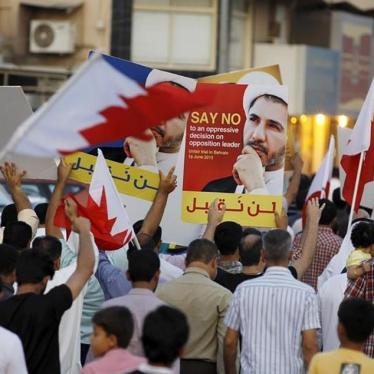This week Bahraini soccer player Hakeem al-Araibi was taken to Bangkok Criminal Court, where bail was denied and his detention was extended for 60 days so Thailand can prepare his extradition to Bahrain, a country where he has said he was tortured.
Al-Araibi is a former member of Bahrain’s national team who was detained following the 2011 Arab Spring protests in that country. He is a recognized refugee in Australia, where he now lives, and Canberra has requested Thailand allow him to return home. The Australian Football Federation, the Football Melbourne league, and his local Melbourne team have all appealed for his safe return.
Al-Araibi was arrested at Bangkok airport last month after flying to Thailand on honeymoon with his wife. His detention came on the basis of a now-lifted Interpol “red notice” arrest warrant issued on Bahrain’s request. Hakeem fears for his life if he is returned to the country he fled.
Speaking to Human Rights Watch from a Thai detention center on December 6, al-Araibi said: “Bahrain is a state that has no human rights. My life is in danger. FIFA should protect me and all players.” He added, “I want to tell President Infantino that he has the power to save my life – and I am asking him to help.”
FIFA, the powerful global football body, has called urgently for al-Araibi’s freedom, saying it “is committed to the respect of internationally recognized human rights,” and concluding that it “supports the calls for the Thai authorities to allow Mr. Al-Arabi to return to Australia…at the earliest possible moment.”
But FIFA can do more. FIFA has recently made numerous reforms to uphold human rights, and has leverage over al-Araibi’s forced return to Bahrain.
FIFA’s Vice President is Sheikh Salman al-Khalifa, a member of Bahrain’s ruling family. Al-Araibi has accused Sheikh Salman of failing to stop the persecution and torture of Bahraini athletes who joined the country’s 2011 protests. Sheikh Salman’s senior position within both FIFA and the Bahraini ruling family makes him well-positioned to stop the extradition, and should act immediately.
FIFA’s human rights policies will ring hollow if Bahrain succeeds in extraditing a player where there is a real risk he will suffer abuse.
Al-Araibi’s concluded his interview with me by saying: “Even if this is the last time we talk, you have my full authority to continue to fight for my case, for my freedom. Shukran.”










